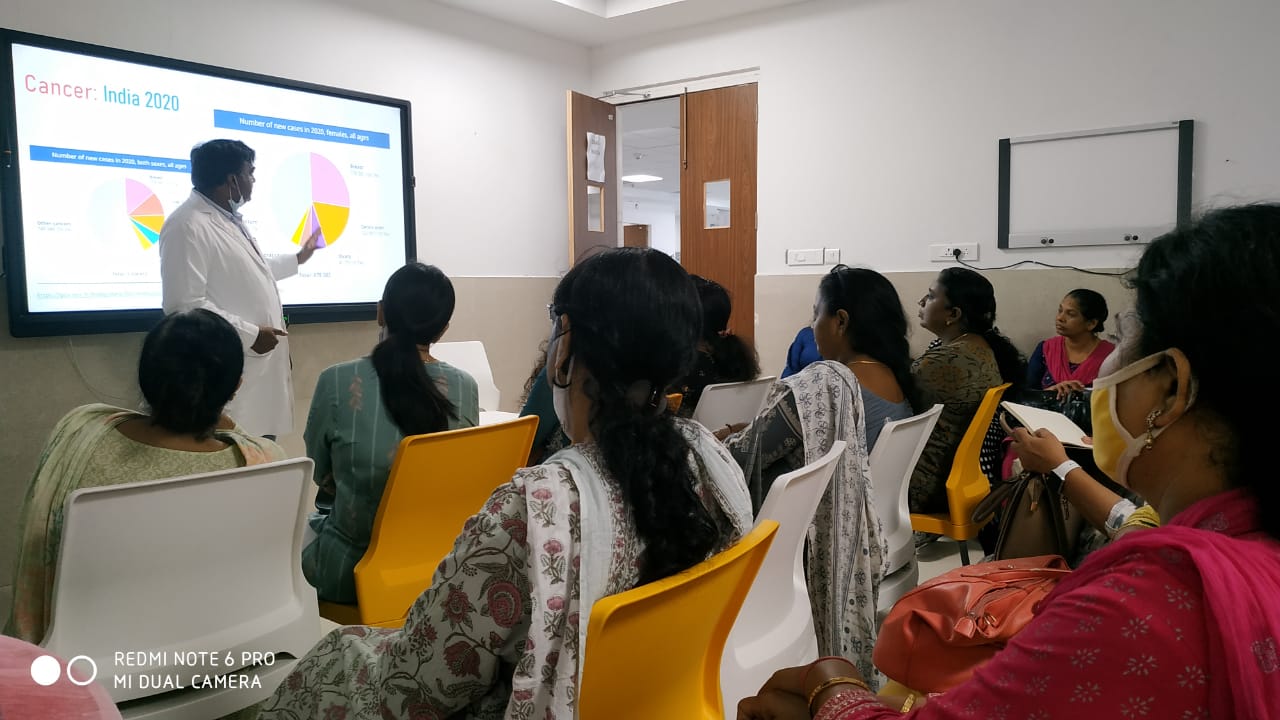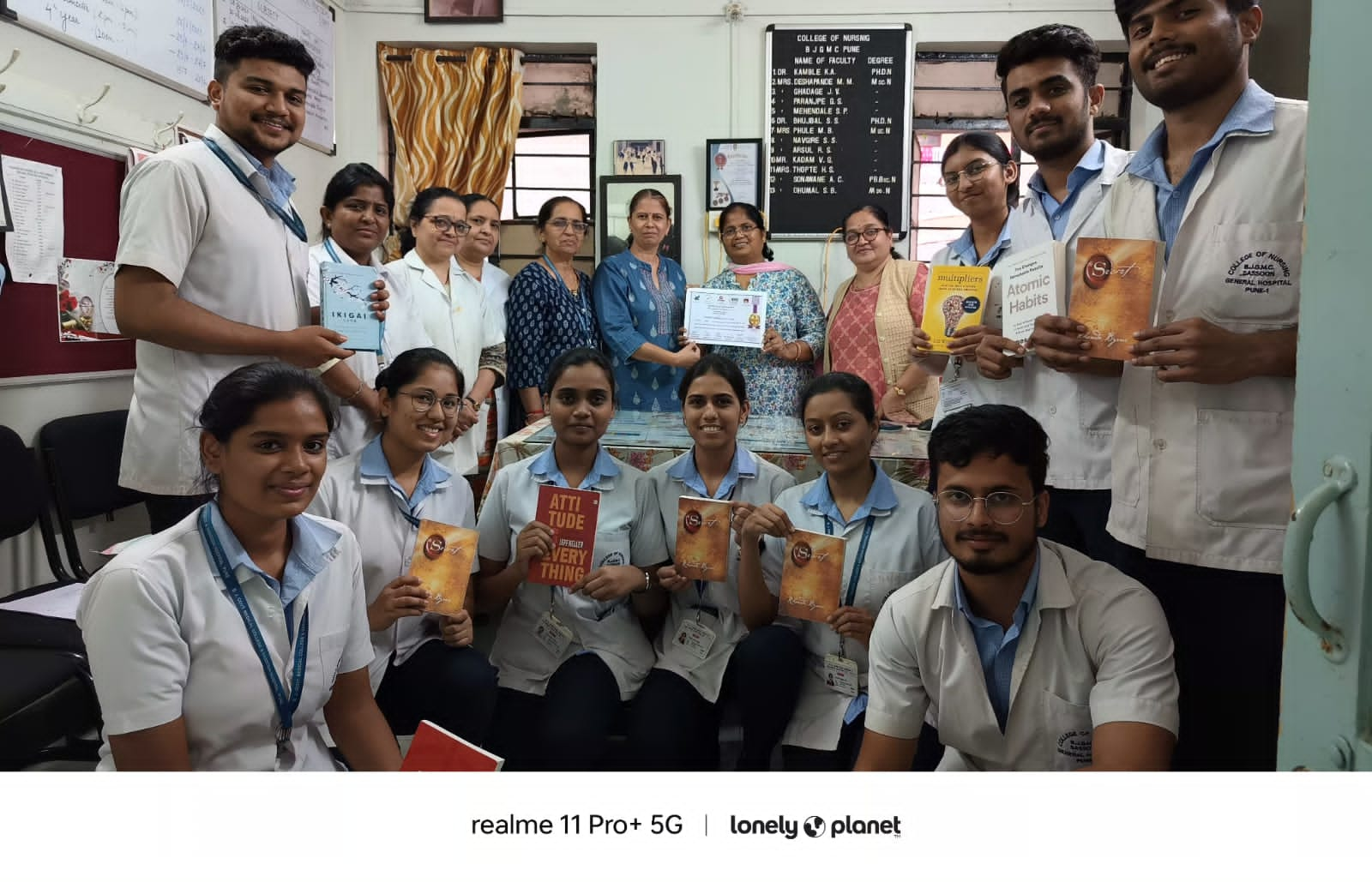India reported its first COVID-19 case in January 2020 and has since witnessed exponential growth in the number of positive cases. So far there have been 968,876 confirmed cases with 24, 915 deaths and 612,814 recovery cases. Claiming proactive handling, the Union government adopted various measures to manage COVId-19 situation in India. However, in the management of this ‘health emergency’ somehow one of the vital characters involved have been forgotten – namely the healthcare workforce. Since health care workers (HCWs) are at the frontline, reports of HCWs testing positive have been on the rise, in which where nurses form the largest share. WHO has dedicated this year 2020 as the International year of Nurse and Midwives to honor nursing profession, and it is ironic that the ongoing Covid-19 pandemic has brought forth the precarious conditions of work of the nursing workforce in India.
In the Indian health system, nurses are engaged across different professional capacity, in private and public hospitals. The employment, service conditions and experiences of challenges at the workplace are not uniform and vary based on the sector (public or private), location (institutional or home-based care), employment status (whether regular or temporary/contractual) and the cadre of employment. Daunting reports have been emerging since March 2020, of challenges faced by nurses in private as well as public sectors during this pandemic. These challenges produced different experiences among private and public sector nurses, more so among contractual and regular employees. Much of these issues have been reported by media, debated by experts and consequently addressed by the government through a series of guidelines, protocol, SOPs and announcement concerning HCWs. Surprisingly, the issues highlighted and government response are primarily concerning a specific set of workers, such as regular nursing staff in public hospitals or COVID dedicated facilities and nurses in private hospitals involved in COVID care; whereas experiences of contractual nurses in public and private hospitals during this pandemic remains under-reported. The issues and challenges of nursing professionals across ‘cadre’ and ‘employment type’ are not the same, hence cannot be viewed collectively or addressed by a generalised intervention.
The crisis of contractual nurses
In 2005, the health policy carved a position for contractual workers to address the shortage of health workforce. The launch of the National Rural Health Mission (NRHM) marked the turning point where the state governments were encouraged to hire contractual health workers to meet the immediate need for human recourse. Since then public health institutions officially adopted the culture of employing contractual nurses to improve the efficacy of health services, enabling states to hire skilled nurses yet avoid expenditure on service benefits while reducing public spending on the health sector. Within two decades, post-90s, informal employment of nurses within a formal work setting in public hospitals has become the new norm. The government approved ‘contractual system’ and ‘recruitment outsourcing’ contains various loopholes that lead to exploitation of nurses. These contractual nurses do the same work as their regular counterparts but under very dissimilar employment conditions. Term of employment, salary and work hours of nurses depend on their status of being ‘contractual’ or ‘regular’, despite the same qualification, work setup and job description and this continue to be so even during COVID-19. On the other hand, nurses in the private sector are employed as informal workers. The contractual nurses face dire challenges across the public and private health sector; they are underpaid and have low job security. Deprived of service benefits and representation in voicing issues like their counterparts, their struggles have increased manifold since the COVID-19 crisis, as discussed in this article.


Recently, a public hospital in Delhi refused to accept resignation from contractual HCWs unwilling to serve COVID-19 cases without adequate protection and threatened them with disciplinary action. In another instance, a private hospital in Delhi where nurses had a mass walkout to protest lack of basic essential services and safety arrangement, the management filed a formal complaint to district authorities, forcing nurses to return to duty lest they are charged with an FIR. This reveals the significance of the work environment which tends to control the choices, decisions and mobility of nursing professionals.
The situation is even more appalling for contractual nurses popularly known as ‘placement workers’ hired by hospitals through a third party or agency, as the Rajasthan incident in April 2020, reveals: over 100 contractual nurses from a public hospital in Jhalawar resigned in protest against low salary, lack of basic working condition and coercion to manage COVID-19 cases without protective gears. The hospital administration refused any accountability stating they were employees of an external agency. While the buck is being shuttled between hospital administration and concerned employment agency, issues of nurses appointed through a sub-contractual arrangement await redressal.
Factor such as low salary and poor work condition trigger different response from nurses based on the sector in which they are employed. The contractual nurses in public hospitals continue working year after year in hope of getting appointed as a regular employee; on the other hand, due to low employment opportunity in public hospitals, the nurses working in private hospitals seek migration (national and international) as a resort to improve their work and living condition.
Existing government SOPs, guidelines and protocols, for the employment of nurses in COVID management does not spell the accountability or specific roles of employment agencies and hospital administration with respect to working conditions such as salary, safety, working hours and incentive to contractual workers engaged in COVID management. More so, there is no government mechanism in place to inform, monitor or support hospital administration/management in adhering to the government protocol concerning contractual employees. Though Central and State government announcements talk about incentive and insurance cover for contractual workers engaged in COVID management, in such tripartite arrangement (employee, hospital and agency), the procedure to claim insurance or incentive by contractual nurses are bleak.
Contractual nurses employed as a nursing assistant or nurse orderlies complained about being treated as ‘untouchables’, where the hospital denied certain sanitary facilities exclusively for them. They were also assigned duty despite having COVID-19 symptoms and did not receive a briefing on precautionary measures, regular health monitoring or minimal quarantine period after 14-day shift nor did the corona positive nurses receive prompt care. Several nurses assistant, handling body fluids complained that they had to work without PPEs whereas senior staff had access to safety gears, even had to wear used gowns handed over by the management. These nurses kept using these gowns till they lasted. Low salaries, lack of paid leave, wage cut, long work shift, absence of incentive, lack of safety measures and discrimination faced by this cadre of nurses even during this pandemic indicate apathy of the government towards harassment faced by them at their workplace.
On one hand little is being done to retain contractual nurses, on the other hand, state governments are appointing nurses on short term contract to address the shortage of human resource for management of COVID-19 with little transparency about their contract, post, salary, incentives etc. In a public facility in Jammu and Kashmir, the employment contract of 250 nurses was terminated; reason cited by the management was that they were unable to apply for renewal despite these nurses being engaged in isolation wards or in quarantine. The incident in Hakeem Abdul Hameed Centenary Hospital, a private health facility, in Delhi, resonates with this experience where 84 contractual nurses were fired by the management citing similar pretext, denying them even the basic essentials of a safe work environment and occupational safety and health during this pandemic. In both cases, the nurses demanded fair compensation and working condition, their contract renewal was put on hold in wake of the pandemic, the assessment process was renewed and the reason cited for termination was that the nurses failed to qualify assessment necessary for renewal of the contract.
Despite constant struggle by the nurses for decent work and pay, the change is yet to arrive, rather their conditions have become miserable since the onset of this pandemic. In March 2020, the United Nurses Association (UNA) moved to Supreme Court raising concern over the safety of HCWs and demanding a National COVID 19 management protocol. In April 2020, the Supreme Court directed the Central government to take all necessary steps to ensure their occupational safety and health. However, in response, only a helpline was started for redressal of nurse’s issues. While the hospitals keep on overlooking the guidelines and protocols for COVID management, the whistleblowers continue to face the repercussion of punitive action. Moreover, despite a number of health care providers getting infected, succumbing to COVID-19 and resigning from their work, strict measures and monitoring mechanism to ensure compliance by the hospitals (COVID or Non-COVID) providing a safe work environment, occupational health and descent pay during this pandemic remain absent.
The policy environment in India has not been favourable for raising the skilled workforce or ensuring decent work condition for nurses. This indicates a lack of political will and focuses on developing skilled professionals, rather the production of the cheap nursing workforce that can be deployed to underpaid jobs, unsuitable work condition without the prospect of professional development. There is a vital need for legal provisions to regulate working condition and compensation of nurses in private sector, fair wages and benefits for contractual and probationary nurses. Past few months have exposed cracks in the under-supported healthcare system and strained nursing professionals. There has been such a large number of resignations and protest staged by nurses across India in past few months, both in the private and public hospitals. This indicates that the present situation is just a glimpse of their ordeal, but there has been prolonged apathy towards the issue of nursing professionals. Essentials such as decent work condition, adequate pay and safe work environment to these workers have been denied for long and they are not ready to bear with it anymore. The policy decisions so far have focused on cementing rather than addressing these fissures. What will be the impact of such radical decisions on the status of nurses, employability, livelihood opportunity or professional advancement, and health system at large, is yet to be seen.
Ipsha Chaand and Indira Chakravarthi, Public Health Resource Network, New Delhi








Very well written. Almost all facts are covered. The govt has to address these issues.
The dignity of labour is evidently doesn’t exist in this system when 2 professionals of the same level of education and the same or more experience and expertise are treated differently. Well narrated as well.
Day and night in service of nation these contractual staff are working .
It seems that government doesn’t care at all .
If they are not taking any desicion for these nurses believe me they don’t even feel real chalanges faces by contract staff.
Everything which costs for livelihood is same for everyone then why they are not given same salary.
Government is doing injustice to these people .
Where else our constitution says we have rights….like equality and all .
I don’t see anything good happening for nurses on contract basis.
Hopefully things will get better 🙏
It’s really eye opener of contract workers… .As long as govt is focussing on production of unskilled nurses. It’s a ongoing problem. . . . It’s high time for nurses not to accept for less
I would like to congrats and Appreciate your writing dear, really your words reflect the actual facts.
Proud of you dear💐
Thanks Ms.Ipsha chand for raised nurse issue and it’s fact no one ready for listen nurses problem.
Very well written…!
All hiden facts you have highligted.You have touched the pain they are suffering.Hope there will be a solution.
Thanks Ms. Ipsha chaand
Apt write up with well presented facts, but the problem remains a problem, it seems there is no solution to the nurse’s problem.
Infact anything / issues related to nursing is always been looked down. The future remains uncertain if not intervened appropriately at policy level.